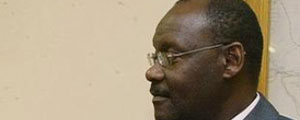
Cimas Medical Aid Society says its failure to settle health service providers’ claims at the newly gazetted tariffs was a matter of affordability, saying the new tariffs could only be paid if members’ contribution rates increased.
BY OUR STAFF
But the society said it did not believe members would be able to afford an increase in contributions.
Recently the ministry of Health and Child Care said four medical aid societies — Cimas, First Mutual Life, Masca and Sovereign Health — had failed to pay service providers at the new maximum tariffs backdated to May 2014.
The ministry said medical aid societies that failed to pay up risked losing licences.
Cimas said it would continue to engage the ministry as well as doctors and other service providers and stakeholders, in the hope that they would come to understand that it was not viable to insist that medical aid societies pay the new maximum tariffs.
“Cimas has no intention of defying any regulations. The failure to settle claims at the gazetted maximum tariff charges is based purely on economic principles,” Cimas said.
It said the only way in which Cimas could afford to pay the gazetted rates without increasing contributions would be if it dips into its reserves.
- Chamisa under fire over US$120K donation
- Mavhunga puts DeMbare into Chibuku quarterfinals
- Pension funds bet on Cabora Bassa oilfields
- Councils defy govt fire tender directive
Keep Reading
“Not only would the depletion of reserves in this way contravene government regulations but it could lead to the reserves being exhausted within less than three years,” Cimas said.
Medical aid societies are legally required to maintain reserve funds that represent at least 25% of total contributions received, it said.
“Cimas is therefore faced with the alternatives of increasing membership contributions, which it believes would cause considerable financial hardship to the majority of its members, or risk have the ministry refuse to renew its licence, which expires at the end of March next year,” it said.
It said that, in common with other medical aid societies, Cimas found it difficult to understand how increases of up to 75% could be justified in a low inflation environment.
Zimbabwe’s annual inflation rate for September stood at 0,09% down from 0,15% recorded in August.











